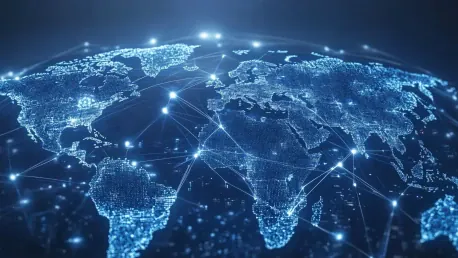The global AI industry is experiencing significant changes with the introduction of the new AI diffusion rule by former US President Joe Biden. Effective from May 15th, this rule restricts the export of AI processors to most countries. The regulation aims to concentrate AI development within the US and its allies, potentially disrupting AI infrastructure plans and impacting technological expansion in foreign markets. This mandate has broad implications for global tech firms and cybersecurity, particularly as these sectors rely heavily on AI innovations.
The Regulation’s Impact on AI Development
The AI diffusion rule has prompted substantial debate within the technology sector. Nvidia’s CEO, Jensen Huang, is leading calls for continued dialogue with the US government to foster informed policymaking. Such discussions are critical to balancing national security interests with the need for global technological progress. Moreover, senior foreign officials and leading tech companies, including Microsoft, urge for a reevaluation of the US semiconductor strategy. They warn that excessively stringent regulations may inadvertently bolster China’s position in AI technology, paralleling its success with 5G networks. This uncertainty underscores the delicate nature of AI advancements and global cooperation. The US aims to maintain a competitive edge in AI, but policymakers must consider the international ramifications of export restrictions. Effective AI development requires cross-border collaboration and shared knowledge among researchers and companies worldwide. Consequently, the regulation’s impact extends beyond national borders, affecting international relationships and market dynamics.
Allot Ltd. and Its Role in Cybersecurity
Amid these regulatory challenges, companies like Allot Ltd. remain pivotal in providing cutting-edge AI-powered network protection and cybersecurity solutions. Allot Ltd., listed on NASDAQ as ALLT, offers comprehensive network-native cybersecurity services and analytics to global service providers and enterprises. Their involvement illustrates the increasing interdependence of AI technology and cybersecurity. As telecommunications and internet sectors rely more on AI for network security, the availability of advanced AI processors becomes crucial. Rakuten Mobile’s partnership with Allot highlights this point further. By integrating AI-driven network protection, Rakuten Mobile can enhance its security posture and safeguard customer data against evolving cyber threats. This collaboration exemplifies how top-notch AI technology and cybersecurity are interconnected, emphasizing the need for policymakers to navigate export regulations while fostering innovation and protection. The strategic interest of hedge funds in AI stocks also reveals a broader trend. Investors recognize the significant growth potential and economic impact of AI technology. The restrictions on AI exports could influence stock performance and investment strategies, potentially leading investors to reassess their portfolios in light of new regulations. Understanding these market dynamics is essential for stakeholders to make informed decisions within a rapidly changing landscape.
Balancing Security and Technological Growth
The global AI industry is undergoing considerable shifts following the introduction of a new AI export regulation by former US President Joe Biden. Taking effect on May 15th, this rule places restrictions on exporting AI processors to most countries outside the United States and its close allies. The goal of this regulation is to centralize AI development within the US and the countries it closely cooperates with, thereby potentially disrupting AI infrastructure plans and hindering technological growth in foreign markets. This move has extensive implications for international tech companies and cybersecurity sectors, which depend heavily on AI advancements. By limiting access to cutting-edge AI hardware, the rule could create a competitive advantage for American firms while posing significant challenges for global companies that rely on these technologies to drive innovation and maintain security. This strategic decision underscores the growing importance of AI in national security and economic leadership.









